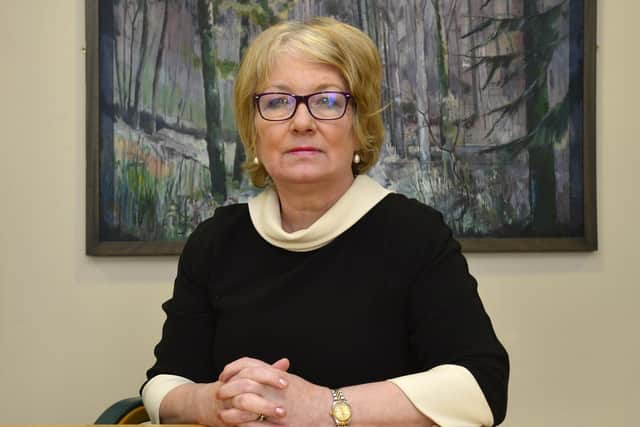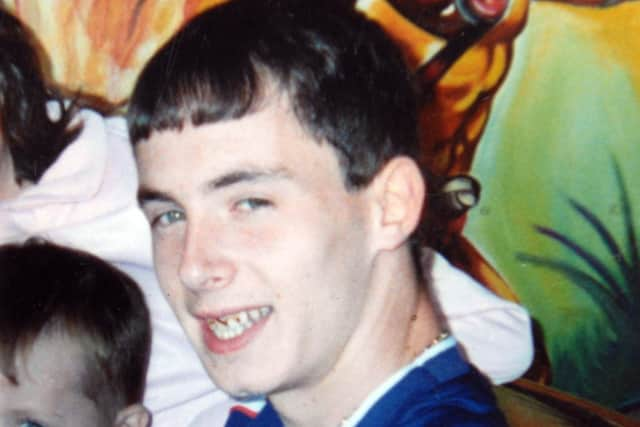Police Ombudsman accepts ‘failings’ identified by Neil McConville inquest
and live on Freeview channel 276
On Monday, Judge Philip Babington ruled that police were justified in using lethal force against Neil McConville when he was shot near Lisburn in April 2003, trying to evade police in a car, during a planned PSNI operation.
The judge did however find a number of shortcomings in how the police operation was planned and controlled, as well as listing a string of mistakes made by PONI investigators at the time – including the loss of interview material, the failure to secure intelligence and the failure to secure initial accounts of the shooting from police officers and other witnesses.
Advertisement
Hide AdAdvertisement
Hide AdA PONI representative gave evidence that Ombudsman’s office accepted the majority of these failings, but stated that PONI was only a fledgling organisation at this time, and that this was the first fatal shooting it had dealt with since its inception.


She also said that new procedures were now in place.
In his published findings, the judge commented: “Whilst one can understand that PONI was a relatively new organisation it was staffed with people who had experience of police investigations. To that extent it is difficult to understand some of the failings and matters that came to light in connection with this matter. I am satisfied there were a large number of failings although they probably had minimal impact on the issues this inquest has had to consider.”
The ombudsman’s office was heavily criticised by Justice McCloskey in 2017 following judicial review proceedings in relation to the PONI report on the 1994 UVF Loughinisland atrocity.
Although the former RUC officers involved in the legal action failed to have the PONI public statement quashed, some of the most damning criticism was removed from the report and the Court of Appeal later held that the then ombudsman, Dr Michael Maguire, had “overstepped the mark” with findings that amounted to verdicts of criminal collusion.
Advertisement
Hide AdAdvertisement
Hide Ad

Following a number of recent PONI reports in which current ombudsman Marie Anderson identified what she deemed “collusive behaviours,” a former RUC detective has written to Justice Minister Naomi Long, calling for an “independent root and branch review” of PONI. The term ‘collusive behaviours’ has been widely reported in the media as a ‘collusion’ determination.
Writing in the News Letter earlier this year, former head of Special Branch Raymond White called for a public inquiry into PONI – alleging a lack of “due process” during legacy investigations.
On Wednesday, the current ombudsman said she had noted and accepted the judge’s comments.
“It is important to point out, however, that our investigative practices have changed significantly in the 19 years since the events in question,” said Mrs Anderson.
Advertisement
Hide AdAdvertisement
Hide AdShe rejected any suggestion that the comments impacted on her recent public statements relating to incidents during the Troubles,” and added: “These statements set out in great detail the evidence on which I based my conclusions. Nothing in the judge’s comments in any way changes that evidence or my findings.”
The nine main PONI failings identified by Judge Babington are:
(a) A delay in PONI officers arriving at the scene.
(b) The failure to treat HH/U219 as a suspect and accordingly isolate him from other officers.
(c) Delay in taking a statement from HH/U129 and the delay in carrying out an interview.
Advertisement
Hide AdAdvertisement
Hide Ad(d) Allowing the debrief to proceed contrary to ACPO guidance.
(e) The failure to retain the weapon that was fired.
(f) The loss of a sketch map completed during HH’s interview.
(g) The failure to secure HMSU training records.
(h) The failure to secure the relevant intelligence.
(i) The failure to secure first accounts from the police witnesses and statements from other relevant witnesses.